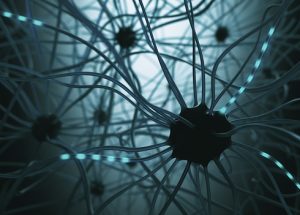
Known as type 2 innate lymphocytes, these cells have been previously found in the gut, lung, and skin. However, finding them in the brain’s meninges was unexpected.
Researcher Jonathan Kipnis explained, “This all comes down to immune system and brain interaction… The two were believed to be completely not communicating, but now we’re slowly, slowly filling in this puzzle. Not only are these [immune] cells present in the areas near the brain, they are integral to its function. When the brain is injured, when the spinal cord is injured, without them, the recovery is much, much worse.”
“They’re right on the lymphatics, which is really weird. You have the lymphatics and they’re stacked right on top. They’re not inside of them — they’re around them,” added researcher Sachin Gadani.
The immune cells have several important functions, such as protecting the body against pathogens and triggering allergic responses. Now the researchers found they also play a role in the response to spinal cord injuries.
Kipnis continued, “These cells are potentially the mediator between the gut and the brain. They are the main responder to microbiota changes in the gut. They may go from the gut to the brain, or they may just produce something that will impact those cells. But you see them in the gut and now you see them also in the brain. We know the brain responds to things happening in the gut. Is it logical that these will be the cells that connect the two? Potentially. We don’t know that, but it very well could be.”
Additional research is required to determine the role of these immune cells in the meninges and how they can be utilized to treat neurological diseases.
Gadani concluded, “It would be inconceivable they’re not playing a role in migraines and certain conditions like that. The long-term goal of this would be developing drugs for targeting these cells. I think it could be highly efficacious in migraine, multiple sclerosis, and possibly other conditions.”